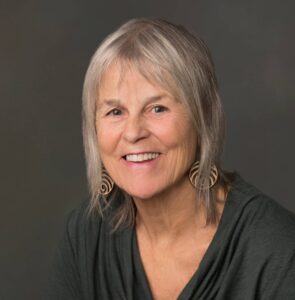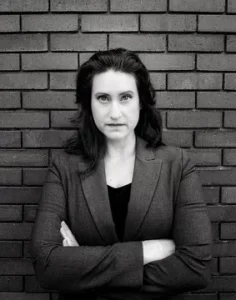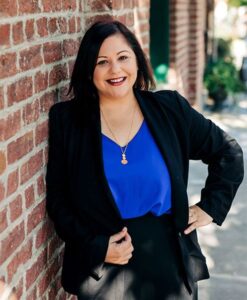Best Family Lawyer in Alameda County, CA
Cindy Elwell
Family Lawyer
Divorce With Dignity was established in 1996, in Alameda, California, to provide a safe place for anyone considering amicable divorce or separation.
We reduce your cost, frustration and time by:
- Preparing and filing your legal documents
- Ensuring you understand the divorce process
- Providing you with holistic divorce support services, which take you from start to finish, with a knowledgeable and experienced guide at every step of the way.
Divorce With Dignity is a safe place for anyone considering amicable divorce. With a national network of divorce support professionals, we will help you keep control of your situation and receive an outcome that is cost effective, safe, and as easy as possible. We provide divorce support in all areas of your process.
Our mission is to provide divorce assistance, support, and facilitation for those who wish to have an amicable divorce.
Our network is continually expanding to serve people in more areas. We currently cover several areas, and should be in more soon.
Erin Levine
Family Lawyer
After 16 years as a divorce attorney; Erin knows just how broken, toxic, wildly inefficient and unreasonably expensive the family law system is. Erin set out to revolutionize how consumers interact with the law and provide a kinder, easier and cheaper pathway to divorce.
Erin’s access to justice work has been recognized by the legal industry and beyond, with awards and recognition from the likes of Women Founders Network, TechCrunch, Vice, Forbes and the American Bar Association.
Vonnah M. Bagner
Family Lawyer
Attorney Vonnah Bagner is passionate about providing high levels of service to her clients. She is focused on working with you and helping you reach your desired outcome. Bagner Law, PC has provided services in Family Law and related areas for over 21 years.
Bagner Law, PC opened in 2003 as Law Offices of Vonnah M. Bagner with offices in San Francisco and San Leandro, CA. In 2005, the entire practice was moved to San Leandro.
Jonathan Lyvere
Family Lawyer
Jonathan was born and raised in Hayward, CA and joined the U.S. Air Force during his last year of high school. He spent the next 6 years flying rescue missions at home and abroad and it was during his time overseas that he developed a deep appreciation for the U.S. legal system. Once home from his tour in Iraq, Jonathan decided that he wanted to pursue a career in law to help those in his community.
Jonathan obtained his B.A. from U.C. Berkeley and his J.D. from the University of Santa Clara School of Law. While pursuing his undergraduate and graduate degrees Jonathan continued to fly rescue missions with the U.S. Air Force, worked as a paralegal at a Bay Area law office, and clerked for the Santa Clara and San Mateo District Attorneys’ offices.
Robyn S. Ginney
Family Lawyer
The thought of facing your soon-to-be ex is incredibly intimidating – maybe even terrifying. You need someone who can step in, take over, and act as a shield so you don’t have to directly interact with your spouse. Maybe your spouse has threatened you, maybe your spouse is abusive, or maybe you don’t want to face conflict. You deserve to have someone supporting you through the entire process; someone who understands how difficult divorcing a difficult spouse is. Robyn is a strong, experienced attorney who can shield you from your spouse, recognize the games being played, and protect what matters most to you.
With more than 15 years of litigation experience, Robyn is a savvy and successful trial attorney specializing in the types of complex, high-conflict divorces where it can appear that progress and resolution are impossible.
Clients often ask if we can handle difficult spouses – spouses who are narcissists or bullies, or those who are mentally unstable, vindictive or irrational. Robyn is deeply passionate about protecting the afraid, the harassed, and the threatened. She focuses on resolving custody issues and financial disputes held hostage by a bullying or irrational ex-spouse.
Robyn’s prior experience as a crisis counselor gives her an extra edge in these types of cases: she has a background in psychology, crisis counseling, and special education that gives her a unique perspective and insight into her client’s fears and the games that others play to prolong or complicate a divorce. Robyn’s experience allows her to offer a blend of legal and psychological expertise to successfully resolve the toughest cases. She has built a trusted network of financial advisors, realtors, and therapists to further help our clients navigate the complex challenges that can arise when dealing with difficult ex-spouses. No one should have to go through this process alone – Robyn helps you build a team to support you during and after the divorce.
Kellan Mayberry
Family Lawyer
Kellan Mayberry was raised in Northern California, completed his general education at Butte Community College. He then transferred to California Lutheran University, where he studied business organizations and marketing while playing collegiate football.
After earning his Bachelor’s degree, Kellan went on to earn his Juris Doctorate degree at Lincoln Law School of Sacramento. While in law school, he interned for both the Sacramento County and Placer County Public Defender’s Office, gaining experience in handling a variety of cases and court processes. At Lincoln Law School, Kellan was on the Dean’s List and graduated in the top ten of his class.
Upon being admitted to the Bar, Kellan was hired as an associate attorney at Ciummo & Associates. While with Ciummo, Kellan defended a variety of cases and tried over a dozen jury trials obtaining favorable verdicts for a number of clients. Kellan continues to fight hard and advocate for his clients.
In his spare time, Kellan enjoys playing competitive golf with his lovely wife Lisa.
Contact Kellan Mayberry today to set up an initial free meeting to discuss your case. We provide a Zero Fee Warranty unless we win to offer so you don’t pay out-of-pocket for professional legal representation.
Bernie J. Kempen
Family Lawyer
We believe that we serve your best interest if we aggressively seek to settle your case out of court.
However, if the other side is unreasonable, we do not compromise and zealously argue your case to the court.
We have a deeply held professional philosophy concerning each area of family law we practice.
We shall personally explain our professional philosophy related to your particular circumstances when we contact you to discuss your case.
In order to bring quality service to you, we have a team of professionals ready to process your case.
Education
- Golden Gate University School of Law, San Francisco, California
- J.D. – 1992
- Honors: Public Interest Scholar
- University of Cape Town, Rondebosch
- B.A. – 1978
- Major: Constitutional Law
- Major: Comparative African Govt. & Law
Caroline D. Ham
Family Lawyer
Caroline has practiced exclusively in the field of family law since she was admitted to practice in California in 2009. She specializes in complex divorce, custody, support, paternity and domestic violence issues. Caroline handles each client’s matter with not only compassion, but direction as well. An experienced litigator, Caroline fights vigorously for her clients in and out of court so that their interests are best represented and protected.
Caroline’s interest in family law began during college when she served as a rape crisis counselor for a local county organization, counseling survivors and assisting them in obtaining domestic violence restraining orders. She later continued this work during law school where she interned for WEAVE, Inc., aiding clients in custody disputes and preparing divorce paperwork on their behalf.
Though she is an aggressive litigator, Caroline does not believe every situation warrants the same approach. Caroline believes some situations, in which the parties may be able to reach agreements, are best suited for mediation. An experienced mediator, Caroline has completed several courses that address collaborative and mediation approaches to dissolving a marriage.
Caroline is also heavily involved with family law issues on a community level, having served two years as the Vice Chair of the Family Law Section of the Alameda County Bar Association. On the state level, Caroline later served as the treasurer for the California Young Lawyers Association for three years. Caroline has also served on the California State Bar – Family Law Section – Bay Area Regional Standing Committee, Family Law Sub-Committee of Delegates, and the Sacramento County Bar Association Delegation to the Conference of Delegates, all committees which researched, reviewed, and made recommendations on family law legislation. Caroline currently serves on the Civics Engagement and Outreach Committee for the California Lawyers Association.
What Are The Most Common Times Of Year People Get Divorced?
The timing of divorce filings tends to follow certain patterns throughout the year, with distinct peaks and slower periods. While couples can get divorced at any time, some times of the year are more common than others for filing for divorce. Here are the most common times of year people tend to get divorced:
1. January: “Divorce Month”
- Why January? January is often referred to as “Divorce Month” because it sees a spike in divorce filings. Many couples decide to wait until after the holidays, particularly Christmas and New Year’s, before initiating the divorce process. They may want to provide a sense of normalcy for their children or avoid disrupting family gatherings.
- New Year, New Start: January marks the beginning of a new year, which leads some individuals to reevaluate their lives and relationships. The desire for a fresh start can motivate people to file for divorce.
2. March: Post-Holiday and Financial Readiness
- Why March? March is another common time for divorce filings. By this time, couples may have fully come to terms with their decision to divorce after the holiday season and have taken the necessary steps to prepare.
- Financial Planning: Some couples wait until tax season to assess their financial situation. Once they have a clearer understanding of their finances, they may feel more ready to proceed with a divorce.
3. August: Post-Summer and Back-to-School
- Why August? Divorce filings often increase in August, just before the start of the new school year. After spending the summer together, some couples may find that their relationship issues have become more pronounced.
- School Schedule Considerations: Many parents prefer to finalize a divorce before the school year begins to minimize disruptions for their children. August offers a window of time to handle legal matters before the start of the school routine.
4. September: Fall Reset
- Why September? September can also see a rise in divorce filings, as couples seek a “reset” after the summer. Just like the New Year, the start of fall offers a sense of transition, and individuals may feel ready to make significant life changes, including ending a marriage.
5. After Major Holidays
- Christmas and New Year’s: As mentioned, January sees a spike in divorces due to the decision to wait until after the holiday season. Couples may choose to maintain a family atmosphere during Christmas and New Year’s before initiating the divorce process.
- Valentine’s Day: For some couples, Valentine’s Day serves as a catalyst for realizing that their relationship is no longer fulfilling. This realization can lead to divorce filings in the weeks following the holiday.
6. Late Spring: Before Summer
- Why Late Spring? Some couples file for divorce in late spring, aiming to finalize the process before summer vacations or family trips. This allows parents to manage the transition during the summer months when children are out of school, making it easier to adjust to new custody arrangements and living situations.
7. Less Common: Major Holiday Periods
- Thanksgiving and Christmas: Divorce filings tend to be lower in November and December, as couples often choose to delay the process until after the holiday season. Many families try to preserve stability during these times and may avoid introducing additional stress by initiating a divorce during major holidays.
Conclusion
While divorce can happen at any time, the most common times of year for filing tend to be January, March, August, and September. These periods are influenced by factors such as the desire for a fresh start, financial readiness, children’s school schedules, and the timing of holidays. Understanding these patterns can help couples better prepare for the emotional and logistical aspects of divorce, especially when considering the best time to file based on their individual circumstances.











